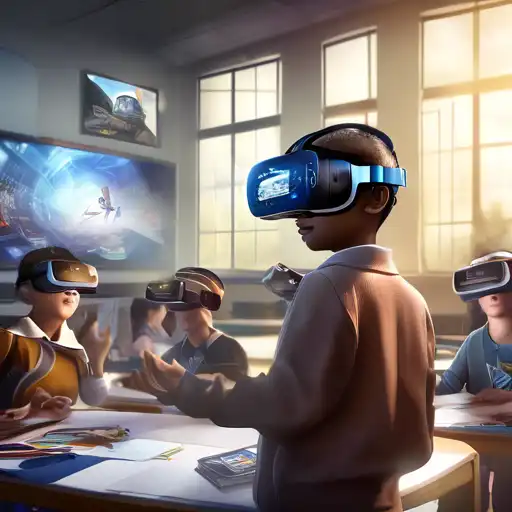Revolutionizing Learning: The Impact of Virtual Reality in Education
Virtual Reality (VR) is transforming the educational landscape, offering immersive learning experiences that were once unimaginable. This technology is not just a tool for entertainment but a powerful educational instrument that can enhance understanding, retention, and engagement among students of all ages.
The Benefits of VR in Education
VR in education brings numerous benefits, including:
- Enhanced Engagement: VR captivates students' attention like never before, making learning more interactive and fun.
- Improved Retention: Immersive experiences help in better retention of information by engaging multiple senses.
- Accessible Learning: VR makes education more accessible, allowing students to explore virtual field trips and historical events from anywhere in the world.
- Safe Environment: It provides a safe space for students to practice skills, such as surgical procedures for medical students, without real-world consequences.
Implementing VR in Classrooms
Implementing VR technology in classrooms requires careful planning and consideration. Schools and educators need to:
- Invest in the right hardware and software that meets educational standards.
- Train teachers to effectively integrate VR into their curriculum.
- Ensure content is age-appropriate and aligns with learning objectives.
For more insights on integrating technology in education, explore our guide on educational technology.
Challenges and Solutions
Despite its potential, VR in education faces challenges such as high costs and technical limitations. However, solutions are emerging:
- Cost-effective VR solutions are becoming more available, making it accessible to a wider range of institutions.
- Advances in technology are reducing technical barriers, offering more user-friendly and reliable systems.
The Future of VR in Education
The future of VR in education is bright, with ongoing advancements promising even more innovative ways to learn. As technology becomes more affordable and accessible, we can expect VR to become a staple in educational institutions worldwide, offering students unparalleled learning experiences.
For further reading on the future of learning technologies, check out our future of education section.
Virtual Reality is not just changing the way we learn; it's setting the foundation for a new era in education. By embracing this technology, educators can provide students with the tools they need to succeed in an increasingly digital world.
